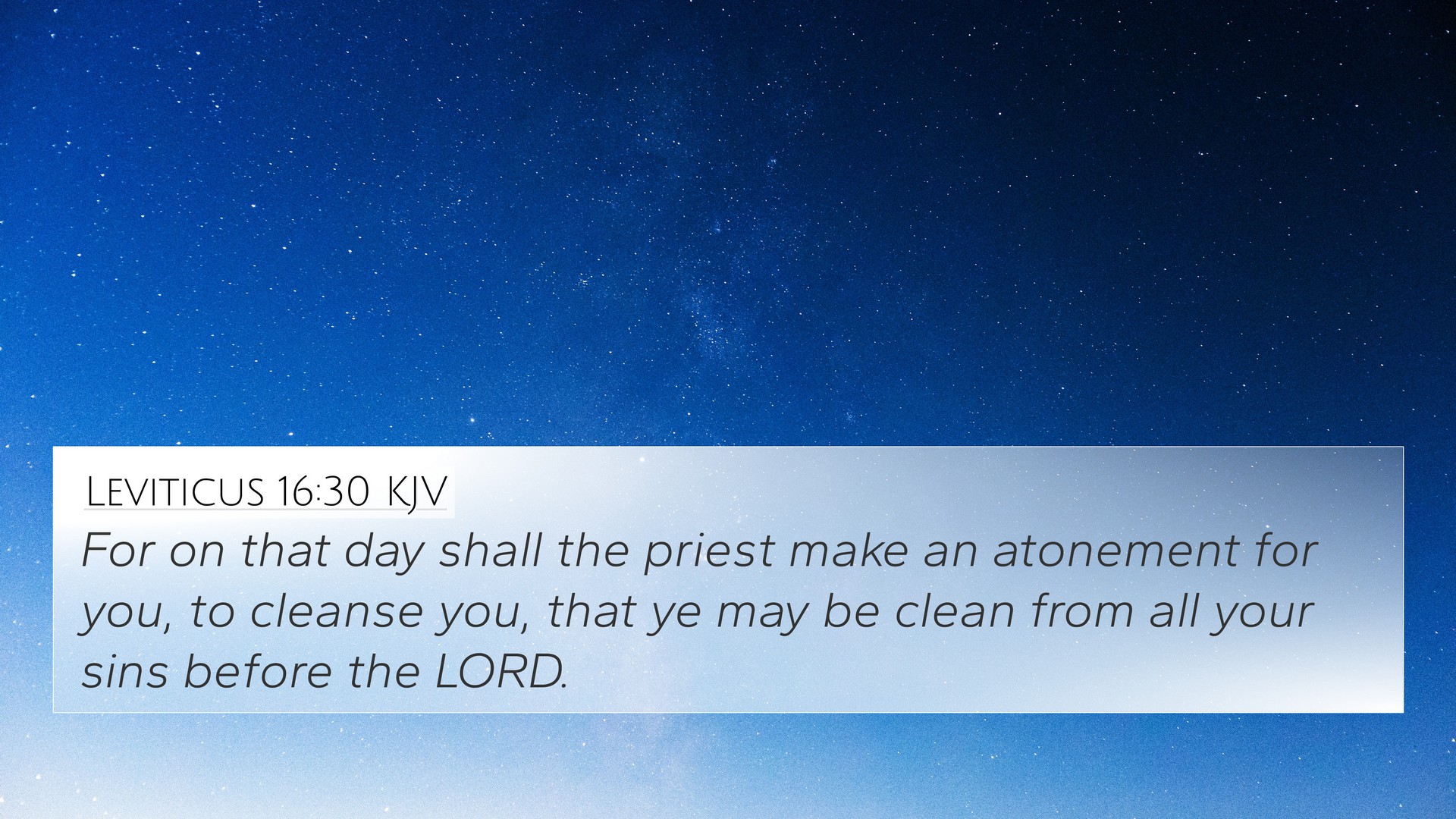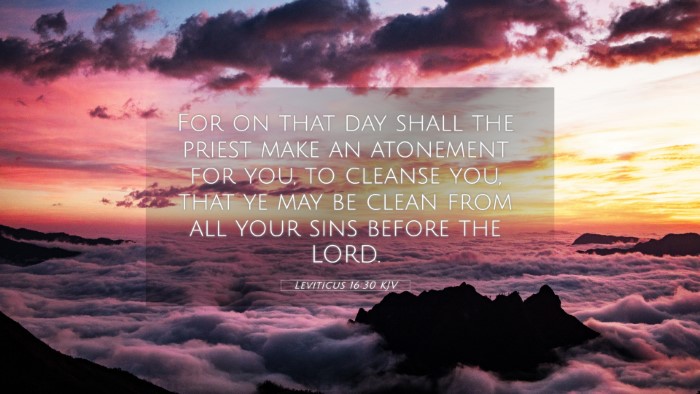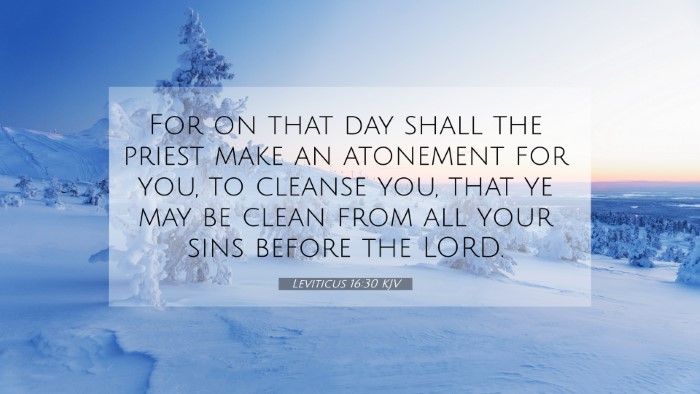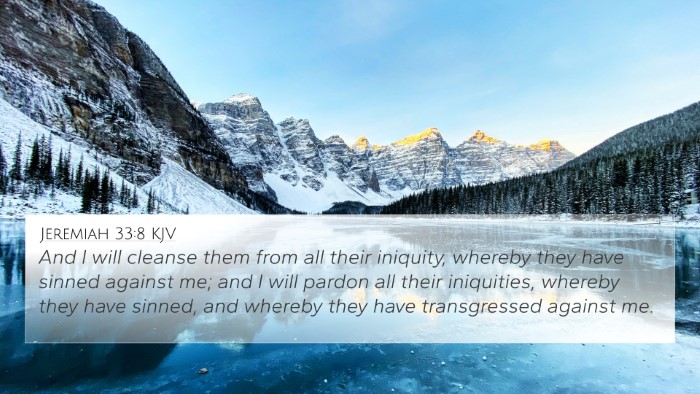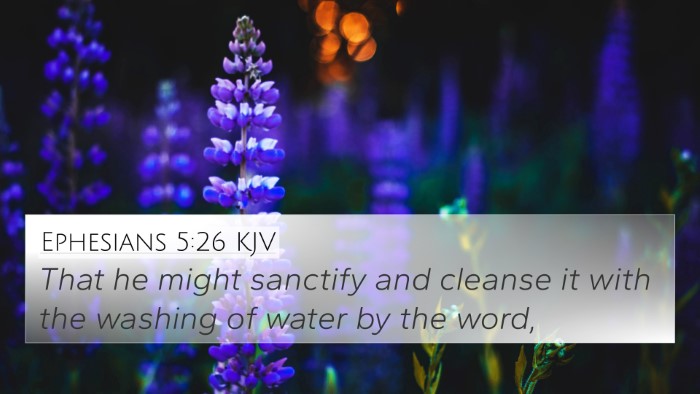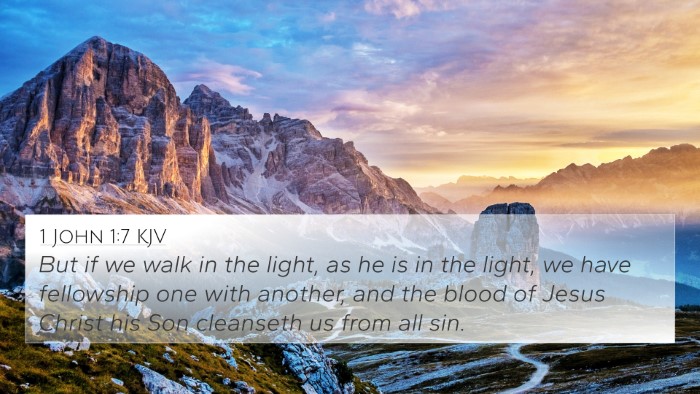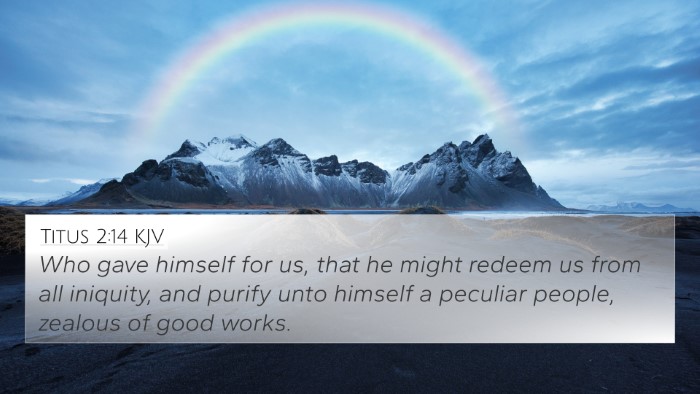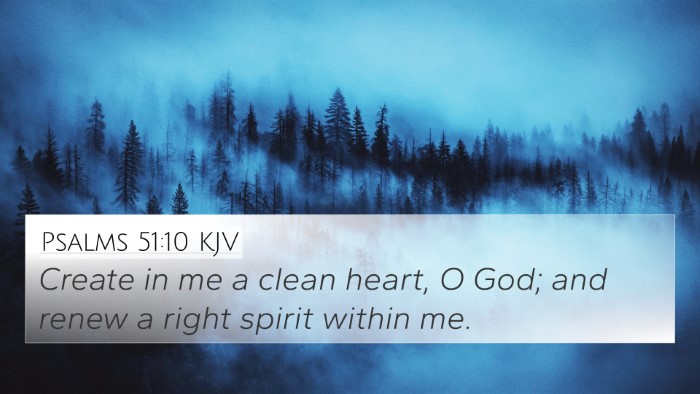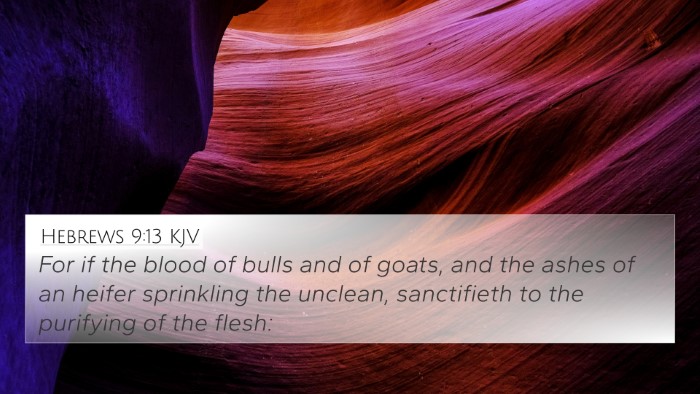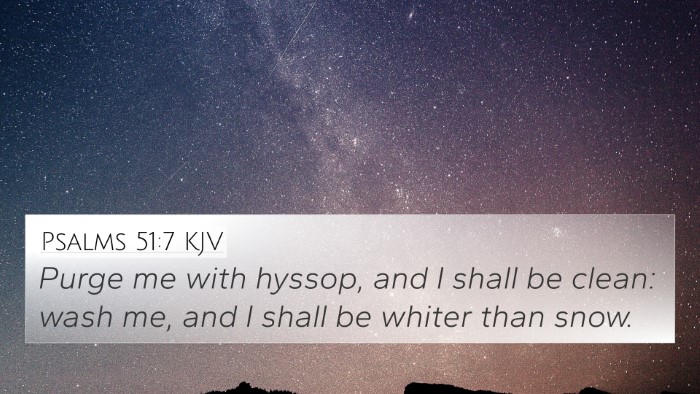Understanding Leviticus 16:30
Leviticus 16:30 states, "For on this day shall the priest make an atonement for you, to cleanse you, that ye may be clean from all your sins before the Lord." This verse is part of the Day of Atonement, a significant event in the Mosaic Law where the High Priest performs rituals to atone for the sins of the people. The meaning of this verse can be deepened through a comparative analysis using insights from various public domain commentaries.
Insights from Various Commentaries
Matthew Henry's Commentary
Matthew Henry emphasizes the importance of atonement as a divine provision for sin. He notes that the act of atonement is not merely ritualistic but serves as a real means of cleansing from sin. Henry illustrates how God's mercy is highlighted on this day, allowing a fresh start for the Israelites. He connects this event with the broader theme of redemption throughout the Scriptures, noting that this cleansing leads to a renewed relationship between God and His people.
Albert Barnes' Notes
Albert Barnes underscores the significance of the priest's role in the atonement process. He explains that the cleansing mentioned in this verse is both spiritual and physical, indicating that the people are restored not only in their relationship with God but also in their community standing. Barnes draws parallels with New Testament teachings, particularly emphasizing that Christ's sacrifice serves as the ultimate fulfillment of this Old Testament ritual.
Adam Clarke's Commentary
Adam Clarke elaborates on the ritualistic aspects of the Day of Atonement, highlighting how the actions taken by the priest symbolize the transfer of sin from the people to the sacrificial goat, which represents the finality of the atonement. Clarke emphasizes the need for a conscious acknowledgment of sin and the seeking of forgiveness, a theme that resonates throughout the Bible and emphasizes the continuous need for atonement.
Key Themes and Connections
Leviticus 16:30 encapsulates several key themes, such as sin, atonement, cleansing, and divine mercy. The verse provides multiple connections to other scripture passages:
- Hebrews 9:22 - "And almost all things are by the law purged with blood; and without shedding of blood is no remission." This connects the necessity of atonement through blood with Christ's ultimate sacrifice.
- Romans 6:23 - "For the wages of sin is death; but the gift of God is eternal life through Jesus Christ our Lord." Links the concept of sin and the need for God's mercy.
- 1 John 1:9 - "If we confess our sins, he is faithful and just to forgive us our sins, and to cleanse us from all unrighteousness." Connects to the theme of cleansing from sin emphasized in Leviticus 16:30.
- Isaiah 1:18 - "Come now, and let us reason together, saith the Lord: though your sins be as scarlet, they shall be as white as snow." A call for repentance and assurance of forgiveness.
- Psalm 51:7 - "Purge me with hyssop, and I shall be clean: wash me, and I shall be whiter than snow." Highlighting the need for cleansing from sin analogous to the ceremonial law.
- John 3:16 - "For God so loved the world, that he gave his only begotten Son..." This verse encapsulates God's love and mercy similar to the atonement process.
- Colossians 2:14 - "Blotting out the handwriting of ordinances that was against us, which was contrary to us, and took it out of the way, nailing it to his cross." Discusses the fulfillment of the law in Christ.
The Importance of Atonement
This verse serves as a reminder of the critical nature of atonement in the life of believers—both in the Old Testament context and in contemporary faith practices. Atonement signifies reconciliation with God, highlighting His desire for a relationship with humanity. The ritual described in Leviticus 16:30 foreshadows the complete and ultimate atonement achieved through Christ.
Tools for Further Study
To dive deeper into the connections between Bible verses and to understand the atonement more fully, the following tools can be beneficial:
- Using a Bible concordance can help locate verses related to atonement and sin.
- A cross-reference Bible study aid allows for exploration of thematic connections.
- A Bible cross-reference guide can provide insight into how various scripture passages interact.
- Investigating comprehensive Bible cross-reference materials would enhance understanding of the interconnectedness of themes.
- Engaging with cross-referencing Bible study methods can reveal deeper insights into the text.
Conclusion
Leviticus 16:30 provides a profound understanding of the concepts of sin and atonement that resonates throughout both the Old and New Testaments. By examining the insights of various commentators and identifying connections with other scriptures, believers can gain a deeper appreciation of God's plan for redemption and forgiveness. Therefore, through the understanding of this verse, we can appreciate the continuity and thematic connections in the biblical narrative.
